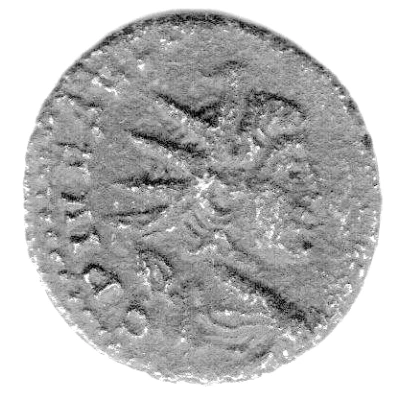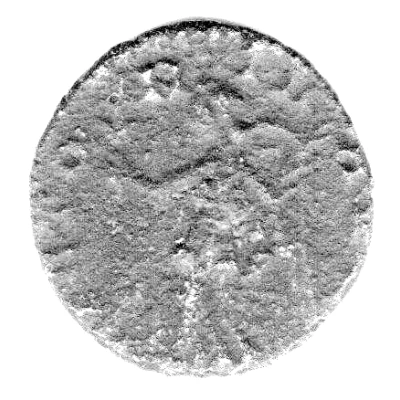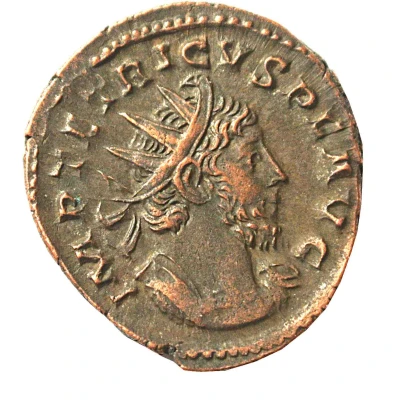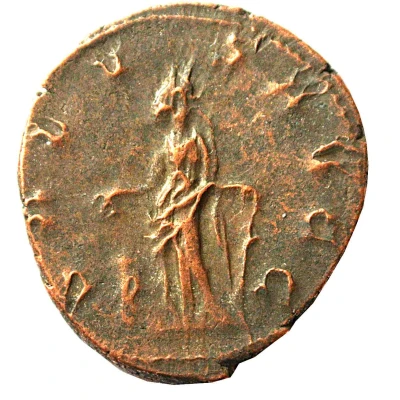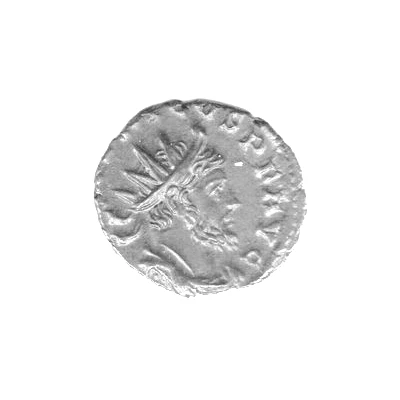
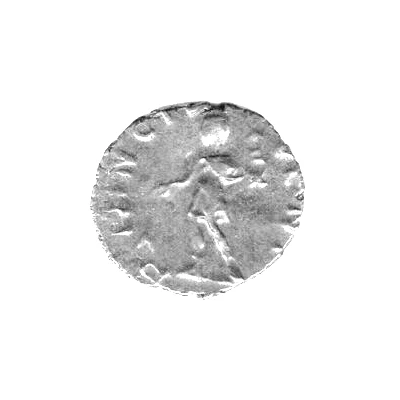

Obverse © PL 100/1
Antoninianus - Tetricus I PRINC IVVENT
| Silver | 1.89 g | 18 mm |
| Issuer | Gallic Empire (Roman splinter states) |
|---|---|
| Emperor | Tetricus I (270-274) |
| Type | Standard circulation coin |
| Years | 273-274 |
| Value | Antoninianus (1) |
| Currency | Antoninianus (260-274) |
| Composition | Silver |
| Weight | 1.89 g |
| Diameter | 18 mm |
| Thickness | 1.2 mm |
| Shape | Round (irregular) |
| Technique | Hammered |
| Demonetized | Yes |
| Updated | 2024-10-06 |
| Numista | N#36021 |
|---|---|
| Rarity index | 91% |
Reverse
Tetricus II standing left, holding olive branch and sceptre/hasta pura. This reverse type was reserved for Caesars, and was meant for the coins of Tetricus II
Script: Latin
Lettering: PRINC IVVENT
Translation: PRINC(ipes) JUVENT(utis) = The first of youths (an honorary title given to the young heir)
Edge
Plain
Comment
A relatively scarce coin, a hybrid from the obverse of Tetricus I + reverse of Tetricus II;Two obverse bust variants are known to exist: cuirassed and draped and cuirassed.
Two obverse lettering variants are known to exist: "IMP C TETRICVS PF AVG" and "IMP TETRICVS PF AVG"
For further reading: Nick Wells - "Tetricus I & II - Guide to main types"
Interesting fact
One interesting fact about the Antoninianus coin featuring Tetricus I (PRINC IVVENT) from the Gallic Empire (Roman splinter states) is that it was made of silver, which was a valuable and sought-after metal during that time period. The coin's weight of 1.89 grams also speaks to the careful craftsmanship and attention to detail that went into its production. Despite being a standard circulation coin, it has become a prized collector's item among numismatists and historians due to its rarity and historical significance.
